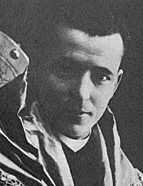

Thus, supported by a protagonist who was close to the facts, Cerejeira could point to the absence of a “ruling class” capable of guiding the country towards a “closer and more active economic regime” as the central cause of national decadence. While not abandoning the decadent reading, which was instrumental to his action aimed at reversing it, he rehearsed the question of its inevitability: rejecting “historical fatalism”, the epistemological presuppositions on which he based himself prevented historiography from answering this question, given that the historical subject “is not interested in knowing what should have been”, instead confining itself to “its own domain”, i.e., “what actually was ” ( Clenardo , p. 194). Above all, it allowed him to show the insufficiency of the theses that pointed to religious influence as the central reason for that decadence, maintaining that “in Portugal the role of religion in the political greatness and material prosperity of nations is easily exaggerated […]”. Although religion could be counted among these causes, it was “not even the most important”. In other words, the purposes, objectives and effects of religion and politics were clearly different: religion “aims directly at the supernatural order”, which allows its influence on the political and material greatness of peoples to be valued “only indirectly ” through its “moral action” ( Clenardo , p. 213).
Cerejeira’s interest in the medieval period reveals the methodological framework of his historiographical activity, as well as the ideological purposes behind it. The analytical precision and clarity of A Idade Média [The Middle Ages] (1936) served the purpose of refuting both the intellectual fads that equated those thousand years to a “false night of ten centuries” and their rehabilitation by Romanticism, which he considered to have been “often more generous than prudent” (p. 11). Refuting the visions of the “age of barbarism”, the “terrors of the year one thousand” – aimed at Michelet whose History of France he considered a “fine book of literature…” – of the same French historian’s “nul bain pendant mille ans”, of the “jus primae noctis” or the “misery of the people”, he seeks a balanced portrait of medieval times (“truthful” is the term he uses), noting its legal, artistic, philosophical, economic, scientific and theological progress, which allowed him to emphasise the role of “Christianity in the formation of the European soul” against the views that blamed the Church for the supposed medieval darkness, without any shadow of a past-loving intentionality: “Certainly, progress does not lie in… going back” (see A Idade Média , p. 174). In his Notas históricas sobre os ordenados dos lentes da Universidade [Historical Notes on the Salaries of University Lecturers], he makes an incursion into the areas of economic and social history, a field that was incipient in Portuguese historiography at the time; without the breath of direct research into these issues, he nevertheless considers them, just as he did in Clenardo [Clenardus] , when he analyses the medieval period, paying attention to the studies of Alberto Sampaio and Gama Barros, as well as Gaulish historiographical production on the subject.
This work is financed by national funds through FCT - Foundation for Science and Technology, I.P, in the scope of the projects UIDB/04311/2020 and UIDP/04311/2020.
